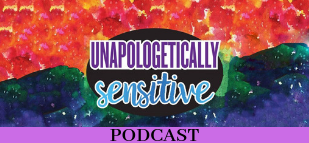In this conversation, Patricia (she/her) and Alex (they/them) delve into the complexities of Obsessive Compulsive Disorder (OCD), discussing its definitions, misconceptions, and talking about their lived experiences with OCD. They explore the different themes and subtypes of OCD, the impact of reassurance seeking in relationships. The discussion also touches on the intersection of OCD with autism and ADHD, emphasizing the importance of understanding these conditions in a nuanced way. The conversation concludes with reflections on finding balance in life and the challenges of perfectionism.
HIGHLIGHTS:
- OCD is characterized by obsessions and compulsions that cause distress.
- Obsessions can take the form of thoughts, memories, or sensations, etc..
- Compulsions are actions taken to reduce distress or prevent feared outcomes.
- There are various themes within OCD, including harm OCD and relationship OCD.
- Reassurance seeking (a compulsion) can be a significant challenge in relationships for those with OCD.
- Medication can be effective in managing OCD symptoms, often in combination with therapy.
- Perfectionism can be a form of OCD. Perfectionism may lead to avoidance of tasks.
- The intersection of OCD with Autism and ADHD can make diagnosis and treatment more complex.
- Understanding the nuances of OCD can help in finding effective coping strategies.
- Finding joy in structure and organization can be beneficial, but it’s important to recognize when it becomes excessive.
SOUND BITES
“What is OCD?”
“It’s a mental health condition.”
“Does it bring you joy?”
CHAPTERS please allow for addition of introduction)
- 00:00 Understanding OCD: Definitions and Misconceptions
- 04:20 Themes and Subtypes of OCD
- 12:29 The Nuances of Reassurance Seeking
- 17:59 Medication and Treatment Options for OCD
- 20:13 Exploring OCD Subtypes Further
- 28:25 Understanding MCAS and Its Implications
- 29:19 The Intersection of OCD, Autism, and ADHD
- 32:03 Co-occurring Conditions: Autism and OCD
- 33:48 Perfectionism and Its Challenges
- 36:34 The Journey to Diagnosis
- 38:14 Finding Joy in Systematization
- 40:31 Compensatory Strategies for Neurodivergent Minds
- 42:39 The Looping Behavior Analogy
ABOUT YOUR HOSTS:
Alex McLaughlin (they/them) has a Master’s in Social Work, and is a licensed independent clinical social worker (LICSW) on Wahpekute land (colonized as MN). Alex is an AuDHDer, PDAer, Queer, non-binary, fat, chronically ill, disabled, & a multi-racial (1/8th Chinese & white passing) human with lived experience of OCD. As a late diagnosed adult, Alex has felt different and embraced their quirky, eccentric nature—what they now recognize as undiagnosed AuDHD. This lifelong experience of masking and curiosity about people inspired their passion for understanding and serving others, ultimately shaping their path today.
Alex provides neurodivergent and Queer-affirming therapy and Autism and ADHD assessments on Wahpekute land (colonized as Minnesota). Their work is grounded in intersectional feminism, ecological systems theory, and a commitment to decolonizing mental health care. They support clients in exploring how interconnected systems shape their experiences, while fostering resilience, empowerment, and self-understanding—especially for Neurodivergent, 2SLGBTQIA+, BIPOC/POGM, and disabled communities. Trained in ERP, I-CBT (including ND-affirming I-CBT), sand tray therapy, TF-CBT, and somatic approaches, Alex also brings lived experience and is pursuing IFS to deepen their parts-informed practice.
Coaching, consulting and training coming soon! Head here to be notified when this practice opens!
Head to Alex’s website here to connect further: Here
Patricia Young (she/her) has a Master’s Degree in Social Work, and was a Licensed Clinical Social Worker for over 17 years, but she is now exclusively providing coaching. She knows what it’s like to feel like an outcast, misfit, and truthteller. Learning about the trait of being a Highly Sensitive Person (HSP), then learning she is AuDHD with a PDA profile, OCD and RSD, helped Patricia rewrite her history with a deeper understanding, appreciation, and a sense of self-compassion. She created the podcast Unapologetically Sensitive to help other neurodivergent folks know that they aren’t alone, and that having a brain that is wired differently comes with amazing gifts, and some challenges. Patricia works online globally working individually with people, and she teaches Online Courses for neurodivergent folks that focus on understanding what it means to be a sensitive neurodivergent. Topics covered include: self-care, self-compassion, boundaries, perfectionism, mindfulness, communication, and creating a lifestyle that honors you
Patricia’s website, podcast episodes and more here!

